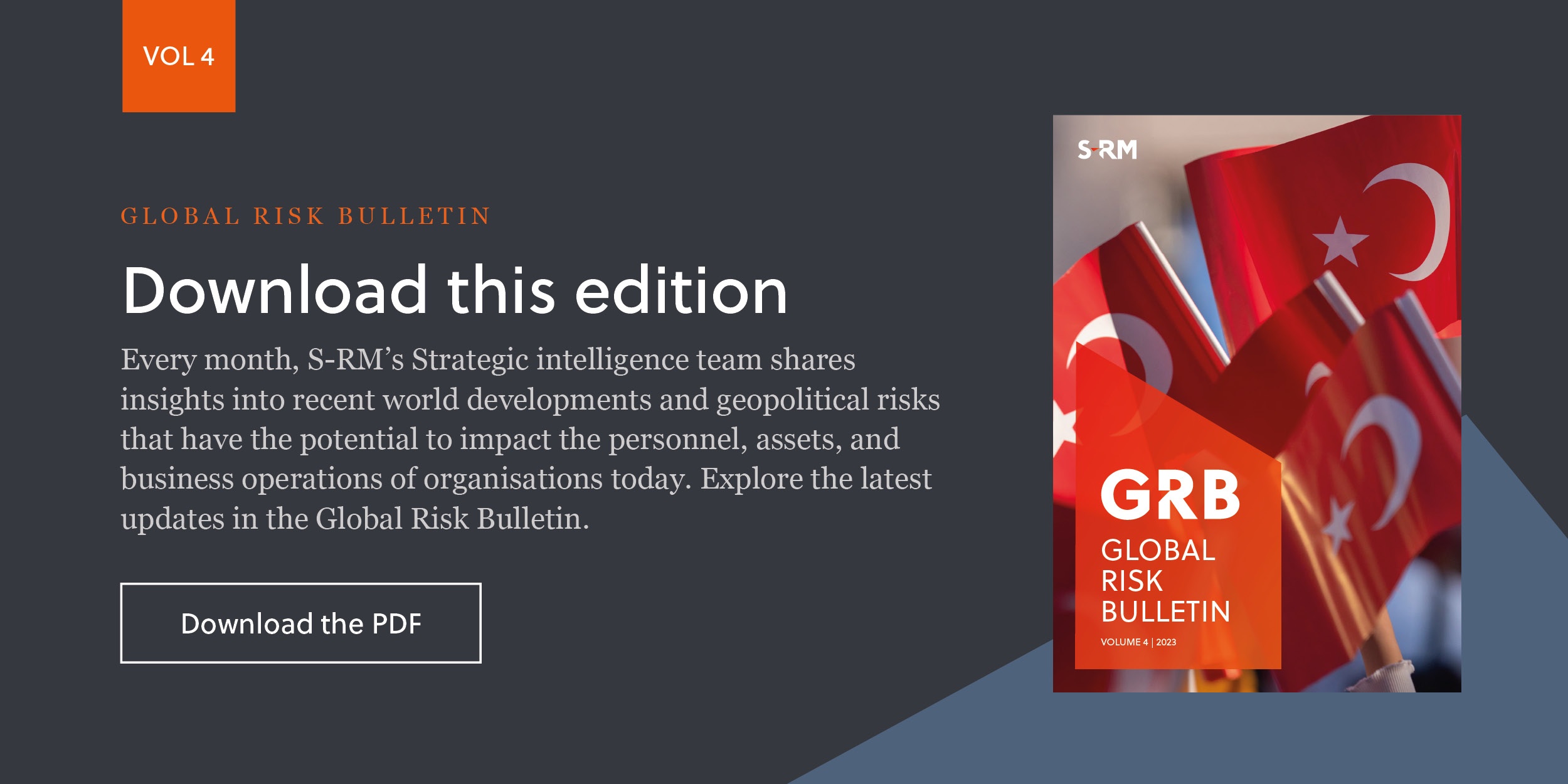Since June 2022, public sector workers have staged several strikes across the UK to denounce insufficient salary increases. Jervin Naidoo and Erin Drake discuss the potential for strikes to persist over the coming months and highlight implications for the broader commercial sector.
In June 2022, rail, health, education and other public sector employees began a series of strikes to demand wage increases. These strikes have continued into 2023, driven by high inflation and an ongoing cost-of-living crisis. Prime Minister Rishi Sunak and the current Conservative government have been hesitant to yield to unreasonable wage demands, viewing the shorter-term disruptions caused by the strikes as the lesser of two evils amid persistent inflation, economic stagnation and rising interest rates. The government has, however, sought to limit the impact of these strikes through attempted talks with unions, and the recent rollout of anti-strike legislation to enforce minimum service levels in key sectors like healthcare, emergency services, transport, and energy, enabling employers to sue unions and fire striking employees who fail to comply.
Despite mass-walkouts and associated disruptions to worker commutes, healthcare, schools, and other services, the economic repercussions of the strikes on GDP have been less drastic than anticipated, costing GBP 1.4 billion between June 2022 and April 2023 (GBP 127 million per month). Yet, while some economists believe strikes are unlikely to significantly impact overall economic stability in the coming 12 months, persistent disruptions could drive workforce challenges like recruitment and retention issues and cast further uncertainty over the Conservative Party's political future.
A rock and a hard place
Total pay (including bonuses) and regular pay (without bonuses) in the UK increased by 5.8 and 6.7 percent respectively from January to March 2023, but real wage decline remains at the heart of worker grievances. Adjusting for inflation, this resulted in a real increase of only 3 and 2 percent respectively over this period. This has prompted calls for public sector salaries to match inflation more closely; nurses have demanded a 19 percent increase, while junior doctors demand a 35 percent rise. Sunak's government remains resistant to many of these demands, instead cautioning that significant wage increases will further push up inflation, which reached a 41-year high in October 2022 and has since hovered around 10 percent. Although the Central Bank expects inflation to moderate to around 5 percent by the end of 2023, cost of living pressures will continue to weigh on the population amid rising food costs following weather-related reduced harvests. These factors could sustain strike action in the coming months as Sunak attempts to persist with the current approach until the Central Bank can bring inflation down to its 2 percent target.
Sunak's government remains resistant to many of these demands, instead cautioning that significant wage increases will further push up inflation."
The operational impact of strikes
Although the financial impact of the strikes has been lower than anticipated, they have driven widespread disruptions to transport and public service provision. The Office for National Statistics estimates that the UK has lost 3.5 million days since the strikes began in June 2022. Some businesses have found ways to circumvent strike-related delays, including through remote working setups, or diversified transport measures to help limit supply chain disruptions. The Centre for Economics and Business Research (CEBR) indicates that participation in walkouts have also declined, while the government has made efforts to appease some unions with wage proposals – like the Transport Salaried Staffs' Association, which recently cancelled a 24 May walkout following progress in talks. But, these positive steps have been limited.
Unless the cost-of-living crisis is adequately addressed, the underlying grievances driving these strikes could feed into a wider staffing crisis in the public and private sectors. Up to 52 percent of public sector employers reported difficulties in filling vacancies, with the National Health Service (NHS) – which provides healthcare to 50 million people and has experienced 63 strikes since June 2022 – short-staffed by 154,000 practitioners as staff leave to pursue better salaries in the private sector and abroad. Bristol-based commerce chamber, Business West, reports that over 80 percent of 319 surveyed firms in the South West, for example, have struggled to fill vacancies and sought to increase wages to retain workers. Three-quarters of all workers in the UK expect pay rises of around 5.6 percent in the next 12 months, which could drive further retention issues should companies fail to meet these expectations. The private sector remains better placed to offer competitive salaries and benefits, but hiring also continues to suffer from skills shortages in key sectors like health, technology, engineering, manufacturing and logistics.
Sunak out of touch?
Sunak remains positive over the prospect of decreased inflation and economic growth in the longer term, although his opponents have criticised this view, claiming it is out of touch with reality. There is also growing concern within the Conservative Party over the impact of an anti-strike posturing and the consequences of not adequately addressing workers' concerns.
With strikes set to continue for now at least, sectors most likely to be directly affected are those with the highest numbers of union membership: healthcare, transport, education and energy. Commercial operators reliant on these sectors – particularly transport – could also face associated challenges. Meanwhile, private employers will likely face continued pressure to increase salaries, and sectors reliant on labour-intensive operations like manufacturing could experience greater challenges in retaining workers should they be unable or unwilling to meet employee demands for better pay.
Political repercussions?
Public opinion polling indicates that sentiment is sympathetic to striking workers, and opposition leader Keir Starmer has already vowed to repeal Sunak's anti-strike legislation should Labour be elected in 2025. Coupled with growing internal divisions in the Conservative Party, public frustration with Sunak is apparent and was reflected in poor performance among Conservative candidates in the May local elections. This is likely to add to the growing uncertainty regarding the Conservatives standing in 2025 and increase the prospects for a Labour government in the near future.





